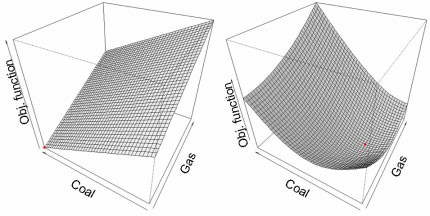MESSAGE Robust Decision Making Framework
Energy systems models like MESSAGE are often used as part of scenario analysis to provide quantitative information about potential developments in the energy sector.
The robust decision making version of MESSAGE provides a representation of key energy uncertainties to allow longer-range insights into the energy system than would normally be possible using the MESSAGE model alone.
FAST FACTS
- The MESSAGE Robust Decision Making Framework increases understanding of the uncertainties of medium and long-term energy system modeling.
- The model is important for making longer-term energy investment decisions
- It helps scientists identify robust energy transition pathways
- The model helps identify potential risks and possible ways of hedging against them.
About the MESSAGE Robust Decision Making Framework
The robust decision making version of MESSAGE was developed in the mid-1990s to test ranges of plausible input data for energy systems. Such modeling approaches provide a better understanding of the uncertainties inherent in medium-term and long-term modeling of the energy system.
In 2009, IIASA reported on the incorporation of a variety of risk management techniques into a reduced-form representation of MESSAGE, giving the model an enhanced utility as a risk management model. This framework was implemented in GAMS and its code is available for download.
How the Robust Decision making Framework works
No model can assume the perfect knowledge required to completely describe a system. Moreover, when modeling longer-term impacts of systems with large-scale uncertainties, many factors come into play that generate an even greater degree of uncertainty.
An enhanced understanding of uncertainty can be achieved in part by means of portfolio optimization techniques borrowed from finance applications, where instead of a single "best guess" (for the cost to build a wind farm, for example), a range of plausible input numbers is tested.
A typical question for the robust decision making version of MESSAGE would be: "If we assume a certain range of energy technology cost developments or carbon prices, what would be the most appropriate technology portfolios for us to use?"
The robust decision making framework helps to identify robust energy transition pathways and hedging strategies.

Attractiveness of coal vs. gas power generation in deterministic MESSAGE (left) and MESSAGE Robust Decision Making Framework (right)
Background
The future development of the energy sector is rife with uncertainties. These affect virtually the entire energy chain, including resource extraction, conversion technologies, energy demand, and how stringent future environmental policies need to be to attain the goals set in the energy and climate change field.
Investment decisions today thus not only need to be cost-effective from the present perspective, but also have to take into account also the future risks of such uncertainties using advanced modeling techniques like the MESSAGE Robust Decision Making Framework.
CONTACT DETAILS
Research Group Leader and Principal Research Scholar Integrated Assessment and Climate Change Research Group - Energy, Climate, and Environment Program
Principal Research Scholar Sustainable Service Systems Research Group - Energy, Climate, and Environment Program
Program Director and Principal Research Scholar Energy, Climate, and Environment Program
Principal Research Scholar Integrated Assessment and Climate Change Research Group - Energy, Climate, and Environment Program
Principal Research Scholar Pollution Management Research Group - Energy, Climate, and Environment Program
Principal Research Scholar Sustainable Service Systems Research Group - Energy, Climate, and Environment Program


